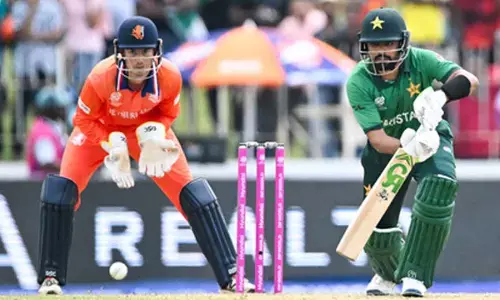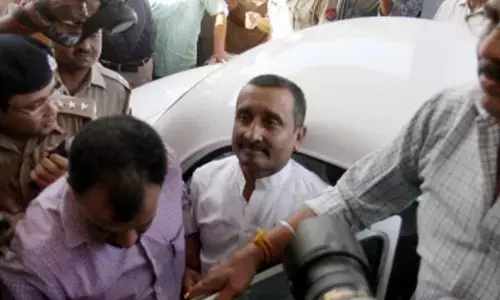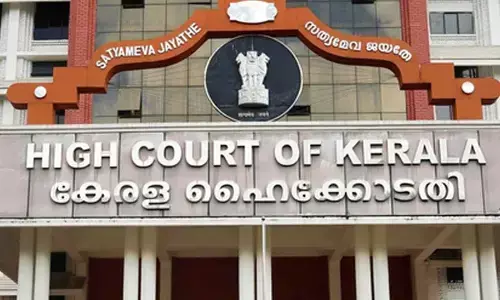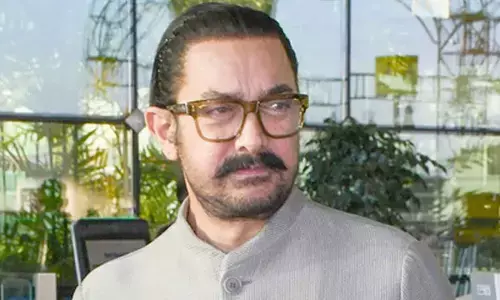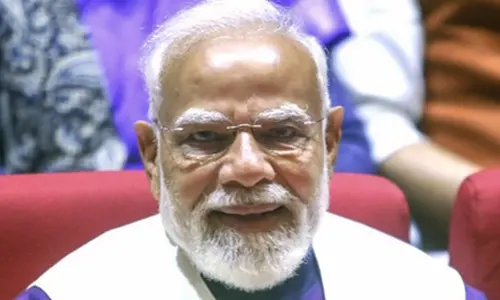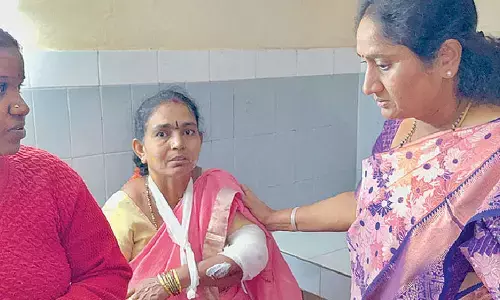Farmer woes not on election agenda

Farmer Woes Not on Election Agenda. While the development issue is perhaps the most important plank for the 2014 elections, the farming population and and the plight of the agrarian community seem to be getting little attention despite 53 percent of the country 1.2 billion population being dependent on agriculture and allied activities.
New Delhi: While the development issue is perhaps the most important plank for the 2014 elections, the farming population and and the plight of the agrarian community seem to be getting little attention despite 53 percent of the country 1.2 billion population being dependent on agriculture and allied activities.
Experts and activists feel politicians and parties give lip service to farmers and their issues but are not serious about addressing their concerns.
"Farmers and their issues have been ignored for long and systematically," P.V. Rajagopal, president of Ekta Parishad, an activists' movement focussing on land rights, told IANS over phone from Jharkhand.

Rajagopal, who had led a march of nearly 100,000 to Delhi in 2012 demanding a land reform policy, said land is being taken away from farmers.
"The blanket mentality has been that industrialisation is the only way to growth and development. Hence, to make land available for industry, and urbanisation, they (politicians) do not want to speak about the issues of farmers," said the activist.
With no one to take up their cause, farmers lead a very difficult life. This is why, activists said, the farming population is slowly decreasing. In 2001, around 103 million were directly involved in farming, while in 1991 the figure stood at 110 million. According to the 2011 Census, the number had plunged to 95.8 million.
This is in contrast to the fact that the number of cultivators had gone up from 92 million to 110 million between 1981 and 1991.
According to the National Crime Records Bureau (NCRB), suicide rates among Indian farmers in 2011 were a chilling 47 percent higher than they were for the rest of the population. There have been 284,000 farmer's suicides in India between 1995 and 2012.
Experts and activists feel that the government's actions are actually pushing people away from agriculture-allied activities.
"The shift began from the Fifth Five-Year Plan (1974-79). By the 12th Plan (2012-17), it was clear. If you see the plan document, the term 'growth' comes several times, but you will not find the word 'village' more than 10 times," Rajagopal told IANS.
Activists point out that in the run up to the 2014 polls, speeches of three main leaders - the Bharatiya Janata Party's Narendra Modi, the Congress' Rahul Gandhi and Aam Aadmi Party's Arvind Kejriwal - have generally focussed on issues of corruption and economic growth and general political attacks.
Agriculture scientist and director of Hyderabad-based Centre for Sustainable Agriculture, G.V. Ramanjaneyulu said that a separate manifesto is needed for farmers.
"The political class has kept its eyes shut over the plight of the farmers. No one has looked into how farmer's income can be increased, or how to make agriculture sustainable," Ramanjaneyulu told IANS over phone from Hyderabad.
The manifesto being prepared by Ramanjaneyulu and his colleagues focusses largely on ensuring sustainable income to the farmers and land reforms.
"The main agenda is ensuring income security for farmers. There is a need to increase income from agriculture and for this a statutory commission should be set up. Second is access to land... land should be given only to those who will cultivate," he said, adding that they will compile the list and then pass it on to political parties for serious consideration of the farmers' needs.
Ramanjaneyulu added the other demands included allocating 10 percent of the total budget allocations for agriculture, which is at present around three percent.
He also felt that land rights was the most important issue to ensure stability for farmers.
"Contract farming is what the government is promoting, rather than taking interest in the people. Even the new land acquisition act only encourages farmers to sell off their lands. The estimates are by 2050, 50 percent of India's population will be urban. For this they need to grab land from farmers," said Rajagopal.
Agriculture and food activist Devinder Sharma felt that despite their being the largest "constituency", farmers and those depending on agriculture get ignored because of the failure of the leaders.
"Farmers have disappeared from political speeches. What is tragic is that agriculturists make up 53 percent of the country's population," Sharma, who has been vocal about farmers being ignored in the elections, told IANS.
"The problem is that the farmer leaders have failed the farmers. If they line up outside party offices seeking tickets, how will the party take them seriously," said Sharma, who writes on the rights of the farmers in newspapers.
IANS








